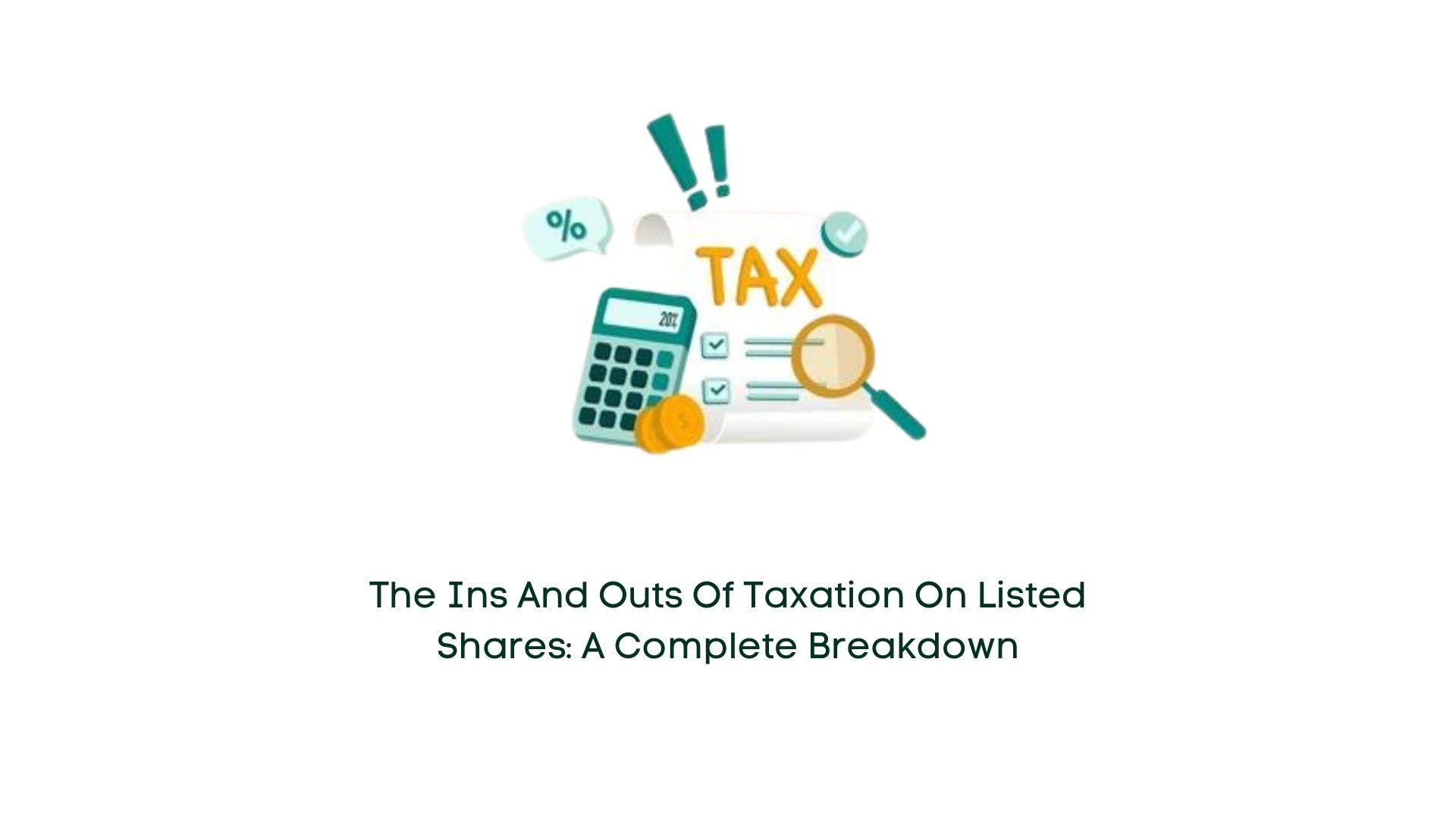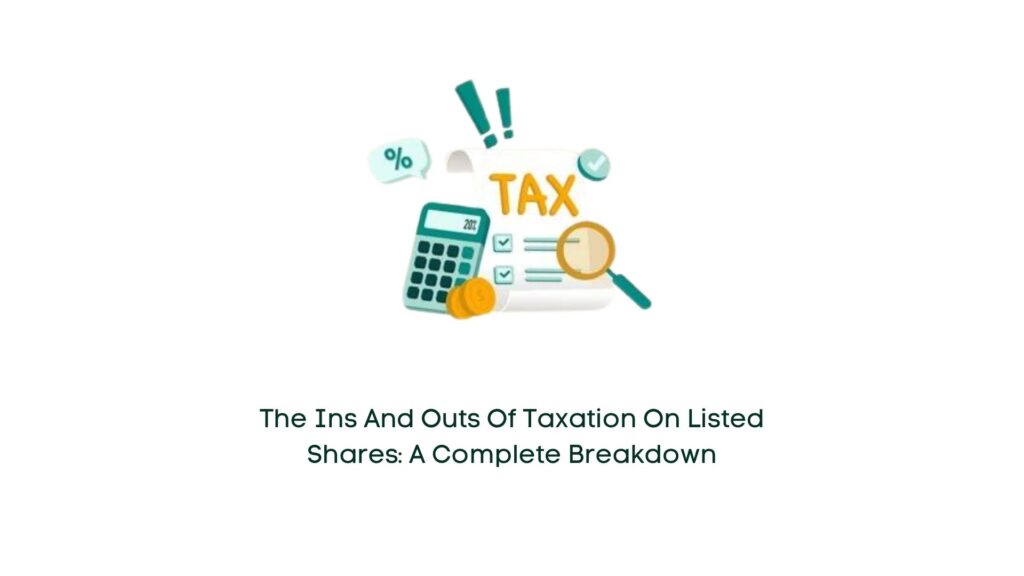
27 Feb The Ins and Outs of Taxation on Listed Shares: A Complete Breakdown

Share trading remains a prevalent avenue for individuals seeking financial gains, albeit not without its complexities. Whether attributed to luck or informed decisions, income generated from the stock market is subject to taxation, much like any other source of income. The regulations governing taxable income and applicable taxes are multifaceted, particularly concerning shares listed on recognized exchanges.
What Constitutes Listed Shares?
Listed shares, as defined by the Income Tax Act, encompass various financial instruments traded on recognized stock exchanges. This includes shares, stocks, bonds, debentures, and other marketable securities listed on Indian exchanges.
Taxable Income from Share Sales
The computation of income from share sales involves deducting the costs associated with the transaction from the sale proceeds. Depending on the duration of asset holding, the income is categorized as either short-term or long-term capital gains, influencing the applicable tax rate.
Tax Rates
Long-term capital gains from listed shares are taxed at a concessional rate of 10% under section 112A if specific conditions are met. For transactions not covered under this section, taxpayers have options to apply different tax rates with or without indexation benefits. Short-term capital gains are generally taxed at 15% under section 111A, provided certain conditions are fulfilled.
Treatment of Losses
Capital losses incurred from share transactions can be carried forward for set-off against future capital gains within specified time frames, offering relief in subsequent years’ tax liabilities.
Determining Business Income vs. Capital Gains
The classification of income from share trading as either business income or capital gains depends on various factors. A circular issued by the CBDT provides clarity on this matter, offering guidelines for taxpayers and Assessing Officers.
Conclusion
Navigating the taxation landscape concerning listed shares entails understanding the applicable rates, treatment of losses, and the distinction between business income and capital gains. By adhering to the regulatory frameworks and making informed decisions, taxpayers can effectively manage their tax obligations in the realm of share trading.


No Comments